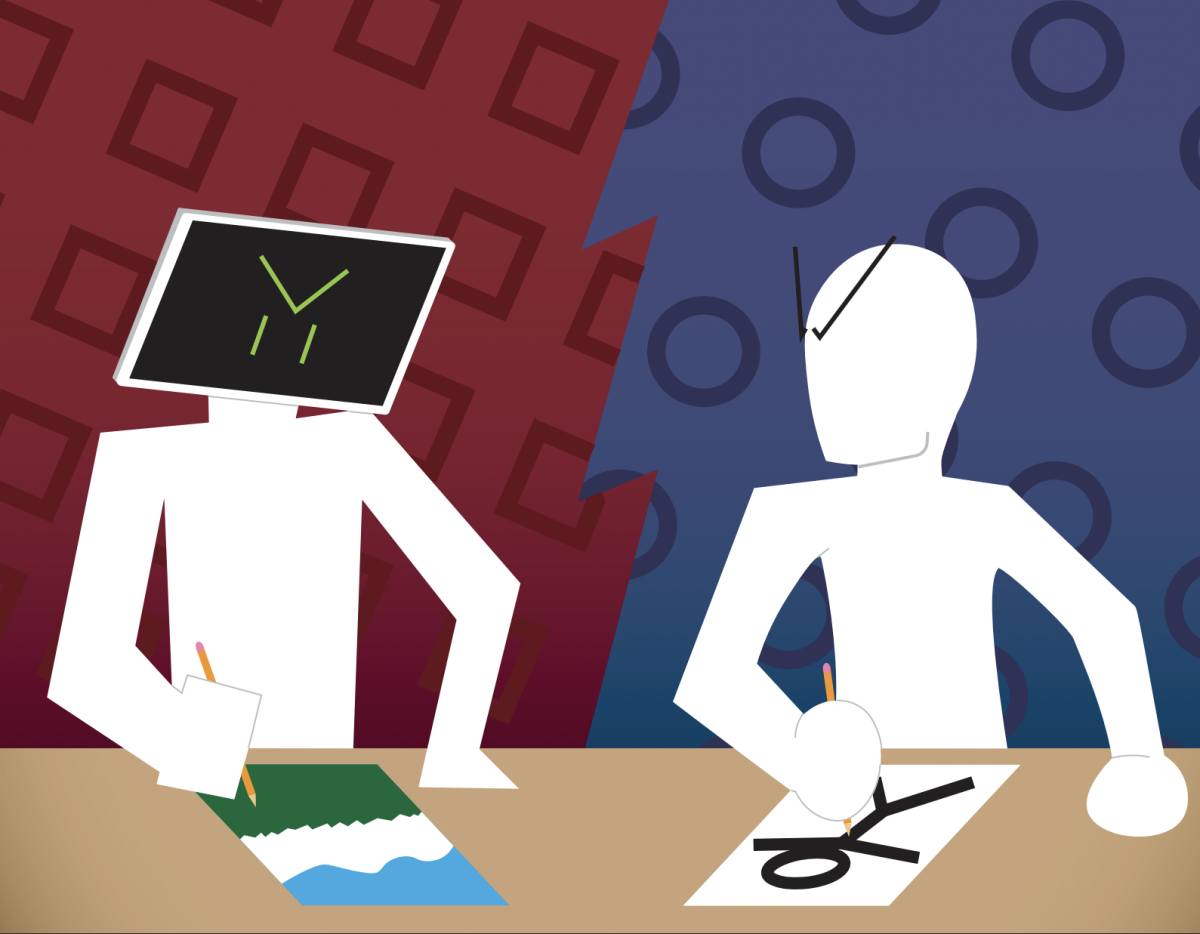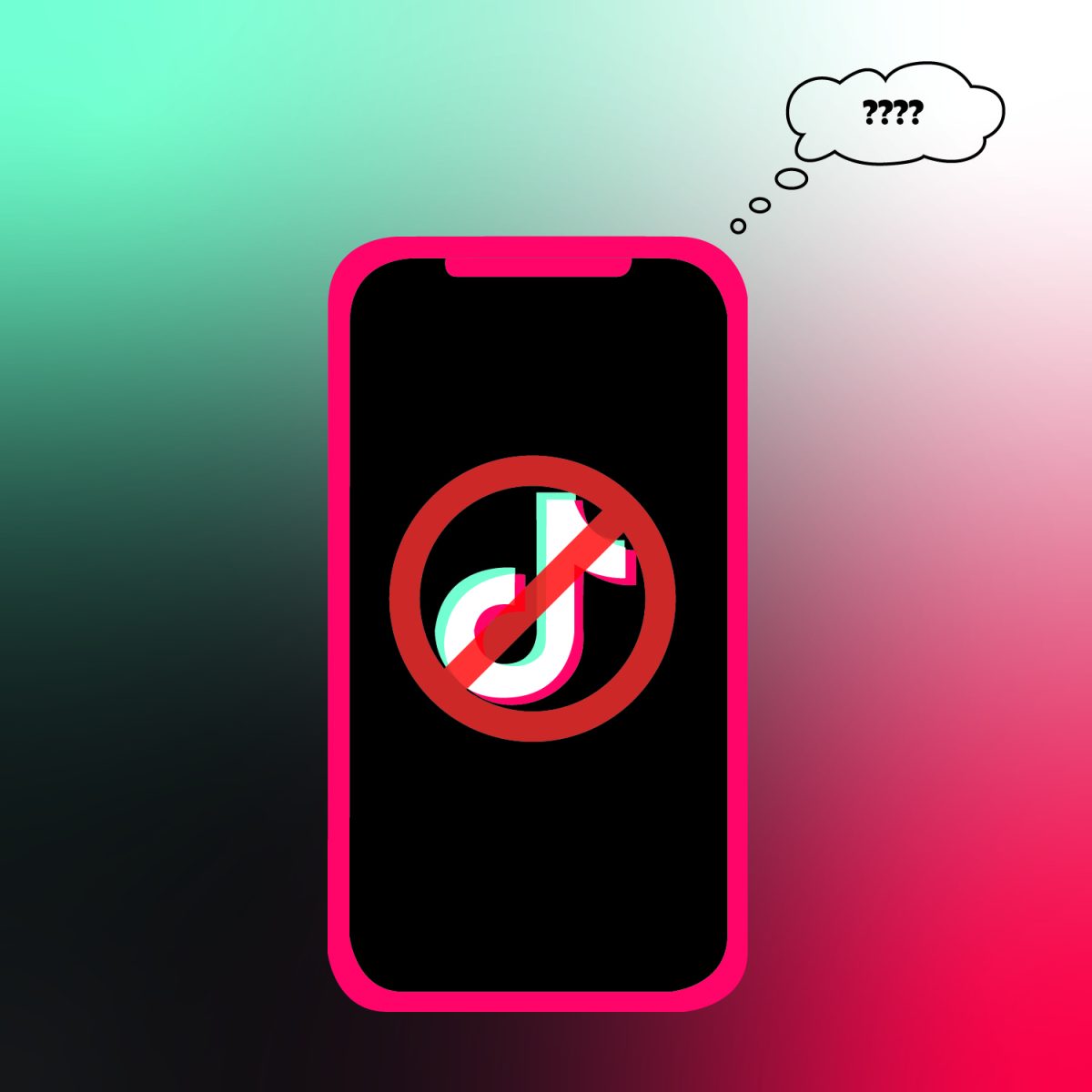From the months of May to September, writers set down their pencils, pushed back their chairs, and made their way to the picket lines. A strike had begun. This one a little more serious than the one seen in “Click, Clack, Moo Cows That Type,” however good that picture book may be.
First, a quick recap, in case you spent the strike going to your local library to pour over other types of writing while your TV stayed dim. What kind of writers? The Hollywood kind, or, more officially, the Writers Guild of America (WGA). NPR explains, “The Writers Guild of America represents nearly 12,000 writers in show business across the U.S.” Who are they striking against? The Alliance of Motion Picture and Television Producers (AMPTP). Sounds like something from “Arrested Development.” Why the strike? From Today, writers are “demanding higher pay and a stable pay structure, as well as fairer deals and contracts and provisions about artificial intelligence,” and “are also fighting for higher residual payments, or the payments writers receive when shows they have worked on are re-released, whether as reruns or in syndication.”
And now a deep dive into what the writers have to say. To show the needed pay increase for residuals, writer Valentina Garza shares on X (formally Twitter) two residual checks she got for two episodes of “Jane the Virgin,” totaling three cents (Today). This is not the first time writers took to the lines. Prior to the 2007-2008 strike, according to Today, “the WGA also launched a strike in 1988 over residuals, spanning 153 days.”
Shows and movies shut down as writers and actors stood as one (the actors’ union, SAG-AFTRA, is currently still on strike, which began in July). Seth Meyers shared with Today that “as a proud member of the guild, I’m very grateful that there is an organization that looks out for the best interests of writers.” Meyers and the other late-night hosts – Kimmel, Fallon, Colbert, and Oliver – started a podcast during the strike – titled “Strike Force Five” – to provide insight, updates, and humor during the strike. All proceeds went to their staffs.
From another NPR article: “Many said they hope the WGA deal will set the framework for SAG-AFTRA, as well as other Hollywood workers whose unions will be negotiating their new contracts.” Everything was on pause until the contract was made. (Still on pause for actors.)
Intensely fan-followed shows like “Stranger Things” delayed production, with the best sci-fi writing twins Matt and Ross Duffer sharing on X: “While we’re excited to start production with our amazing cast and crew, it is not possible during this strike. We hope a fair deal is reached soon so we can all get back to work. Until then — over and out. #wgastrong.”
Stand-up comedian John Mulaney, while sitting down and being serious, said, from The Wrap, “There’s so many shows, and now we’ll see how many there are,” explaining further with, “You only have the ones you have. If everyone’s just going to continue watching streaming TV, I wonder when it will hit a point where as a viewer it’s frustrating that there’s not new stuff,” he added. Mulaney mentioned thinking AI was a side issue, though it was a large reason for the strike.
Another large issue was the use of writers’ rooms, streamers, and bingeable shows. From Today and a quote from writer Amanda Mercedes: “Streaming services like Netflix have ‘changed the business model completely,’ making it harder for writers to find consistent, well-paying work.” Also from Today; “Whereas a successful show could have run for seasons during the cable era, giving writers steady job and learning for years, the binge-able, big-budget shows made for streamers are typically shorter and renewed with less consistency. Writers have to scramble from job to job.” Sitcoms like “Parks and Recreation” or “The Office” are good examples of steady writers’ rooms, where writers have a job for at least the run of a season. The modern, streaming, bingeable shows come out quickly and give writers a less consistent job because the run of the show is over quickly.
Interviewers got the immediate perspective of the writers on the picket lines, with numerous quotes from the strikes themselves. From The Week, Meyers feels “very strongly that what the writers are asking for is not unreasonable.” In another interview with The Wrap, Meyers shared “It helps that the writers, myself included, all feel as though the strike was worth it,” and “that the gains were considerable enough to have been equal to the sacrifice that was made. So there’s just a nice energy.”
Ever an all-loyal team, Pete Davidson was seen handing out pizza to writers on the picket lines. Davidson was supposed to host SNL before the strike but was postponed until it ended. From Upworthy, Davidson was seen protesting (and pizza-ing) with “Judah Miller, the Emmy-nominated executive producer and showrunner of Davidson’s new Peacock show, ‘Bupkis.’”
“Ted Lasso” coach Roy Kent joined fellow Richmond AFC coaches Ted and Beard on the lines. Brett Goldstein, who writes for the show and plays Roy Kent, said, from The Week, “it seems a real shame that all of this stuff that is made is made by writers and there are writers genuinely struggling to afford to live.” From the same article, Rob Lowe said, “I came out to support the writers because, as actors, we’re only as good as the writing we get.” Josh Gad said, “We are nothing without their words. We have nothing without them.”
In the end, we all put our trust in Mose Schrute, as the one and only writer Mike Schur was on the negotiating committee. And lastly, another piece of insight from Meyers: “I don’t recommend going through things like a pandemic or a writers’ strike for the purposes of appreciating your job more. You should just do it independent of those massive disruptions. But that is a thing they serve to provide, which is a real appreciation for getting to come in to work every day.”














